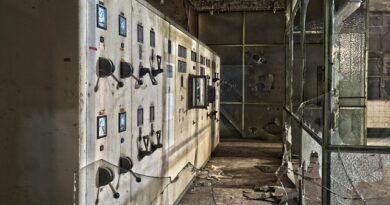PowerWatch Chronicles: Shocking Discoveries from Electrical Safety Audits in Bhiwadi
Introduction
In recent years, the city of Bhiwadi has experienced rapid industrialization, leading to a surge in electricity consumption and installations. However, with the increasing demand for power comes the potential for electrical hazards. Electrical safety audits have been conducted in Bhiwadi to assess and address these risks. This article explores the shocking discoveries made during these safety audits, highlighting the importance of electrical safety in the industrial hub of Bhiwadi.
1. Understanding the Need for Electrical Safety Audits
- Explaining the purpose of electrical safety audits.
- Outlining the scope of audits in industrial areas.
- Importance of safeguarding workers and machinery.
2. Hazards and Risks in Industrial Electrical Installations
- Identifying common electrical hazards in industries.
- Risks associated with outdated electrical systems.
- Impact of poor maintenance on safety.
3. Case Studies: Tragic Electrical Accidents in Bhiwadi
- Highlighting specific incidents that resulted in accidents.
- Analyzing the causes and consequences of each accident.
- Emphasizing the role of preventive measures.
4. Compliance with Electrical Safety Standards
- Understanding the applicable safety standards and codes.
- The importance of adhering to national and international regulations.
- Consequences of non-compliance for businesses and individuals.
5. The Role of Technology in Enhancing Electrical Safety
- Introducing modern safety technologies and devices.
- How automation can minimize human error and accidents.
- Benefits of investing in smart electrical systems.
6. Educating and Training the Workforce
- Importance of training employees in electrical safety.
- Creating a safety-conscious work culture.
- Collaboration between industries and educational institutions.
7. Regular Maintenance and Inspections
- Emphasizing the significance of routine maintenance.
- The role of scheduled inspections in identifying potential risks.
- Addressing issues promptly to prevent accidents.
8. Promoting Electrical Safety Awareness
- Creating awareness campaigns for workers and residents.
- Engaging the community to participate in safety initiatives.
- Public-private partnerships in promoting electrical safety.
9. The Financial Impact of Electrical Accidents
- Analyzing the cost of electrical accidents for industries.
- The burden on healthcare facilities and insurance providers.
- How prevention is more cost-effective than dealing with accidents.
10. A Multi-Faceted Approach to Electrical Safety
- Encouraging collaboration between government, industries, and experts.
- Integrating safety measures into city planning and infrastructure development.
- The role of individual responsibility in maintaining safety.
Conclusion
The electrical safety audits conducted in Bhiwadi have revealed shocking insights into the potential risks and hazards associated with industrial electrical installations. The need for strict compliance with safety standards, regular maintenance, and workforce education cannot be overstated. By embracing advanced technologies and promoting safety awareness, Bhiwadi can create a secure environment for its residents and businesses.
FAQs
1. Are electrical safety audits mandatory for all industries in Bhiwadi?
Electrical safety audits are highly recommended for all industries in Bhiwadi. While they may not be mandatory in all cases, conducting these audits helps identify potential risks and ensures compliance with safety standards.
2. How can technology contribute to electrical safety?
Technology plays a significant role in enhancing electrical safety. Automated systems can reduce human errors, and smart devices offer real-time monitoring and alerts, preventing accidents.
3. Can small businesses afford the cost of electrical safety measures?
Yes, investing in electrical safety is essential for businesses of all sizes. While there might be initial costs, the long-term benefits and accident prevention outweigh the expenses.
4. How can individuals contribute to electrical safety in their communities?
Individuals can promote electrical safety by being aware of potential hazards, reporting any concerns to the authorities, and participating in safety awareness campaigns.




